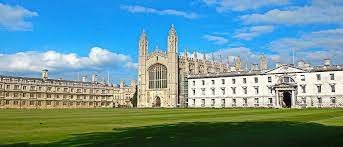In Nigeria, there are many schools and universities that offer master’s degree programs, and many of these schools accept HND certificates, second class degrees, and third class degrees from students who wish to pursue further education.
Many schools and universities in Nigeria have adopted admission policies that allow for a wide range of academic qualifications. This includes schools that accept HND certificates, second class degrees, and third class degrees, which opens up opportunities for a more diverse pool of students to pursue postgraduate education.
This blog post will provide an overview of some of the most popular schools and universities in Nigeria, as well as the requirements for admission.
Criteria For Admissions Into Universities In Nigeria for Masters Degree Programs
Admission into Masters degree programs in Nigerian universities comes with its own set of criteria, designed to evaluate the academic and professional readiness of applicants. These criteria ensure that candidates are adequately prepared for the rigors of postgraduate study. Below are the typical admission requirements for prospective students holding various qualifications, including HND certificates, Second Class Lower, and Third Class degrees:
- Bachelor’s Degree/HND Certificate: Applicants must possess a minimum of a Bachelor’s degree from a recognized university or an HND certificate from a polytechnic. The degree classification or HND grade can vary, with specific programs open to Second Class Lower or Third Class degree holders, and others specifically tailored for HND certificate holders.
- NYSC Discharge/Exemption Certificate: Candidates are often required to provide evidence of completion or exemption from the National Youth Service Corps (NYSC) program, which is mandatory for Nigerian graduates.
- Transcripts: Official transcripts from the undergraduate institution (and, if applicable, postgraduate diploma institution) must be submitted. This document provides a comprehensive record of all classes taken and grades earned, allowing admissions committees to assess an applicant’s academic journey.
- Academic References: At least two academic references (or in some cases, one academic and one professional reference) are usually required. These references should speak to the applicant’s ability to undertake postgraduate study.
It’s important for prospective students to consult directly with their institutions of interest for the most current and specific admissions criteria, as requirements can vary not only by university but also by department or program.
Schools in Nigeria that Accept HND Certificates, Second Class and 3rd Class for Masters Degree Programs
In Nigeria, a significant number of institutions have adjusted their admissions criteria to accommodate a broader range of academic backgrounds, recognizing the potential of students who have demonstrated commitment and ability in their previous studies. This inclusivity extends to holders of HND certificates, as well as graduates with Second Class Lower and Third Class degrees, looking to pursue Masters degree programs. Below is a curated list of schools known for their flexible admission policies regarding such qualifications:
1) University of Lagos (UNILAG)
The University of Lagos (UNILAG) is one of Nigeria’s leading universities and one of the top 100 universities in Africa. It offers a wide range of undergraduate and postgraduate programs, including Master’s degree programs. The university’s Master’s degree programs are open to students with Higher National Diploma (HND) certificates, second class degrees, and third class degrees.
In addition to academic qualifications, the university also considers applicants’ work experience and other relevant factors when making admission decisions.
2) Ahmadu Bello University (ABU), Zaria
Ahmadu Bello University (ABU) is one of Nigeria’s most prestigious universities and is located in Zaria, a city in northern Nigeria. The university offers a wide range of undergraduate and postgraduate programs, including Master’s degree programs. HND certificate holders, second class degree holders, and third class degree holders are eligible to apply for the university’s Master’s degree programs.
ABU is a leading research university in Nigeria and has a strong reputation for academic excellence.
3) University of Nigeria, Nsukka (UNN)
The University of Nigeria, Nsukka (UNN) is a public university in Nigeria that was founded in 1960. The university offers a wide range of undergraduate and postgraduate programs, including a number of Master’s degree programs.
HND certificate holders, second class degree holders, and third class degree holders are all eligible to apply for admission to these programs.
4) Obafemi Awolowo University (OAU), Ile-Ife
The Obafemi Awolowo University (OAU) is a highly respected university in Nigeria, located in the city of Ile-Ife. The university offers a wide range of Master’s degree programs, and HND certificate holders, second class degree holders, and third class degree holders can all apply for admission. OAU is known for its rigorous academic standards and for producing high-quality graduates.
5) Federal University of Technology, Akure (FUTA)
FUTA is a leading university of technology in Nigeria, offering master’s degree programs in various engineering and science-related fields. The university may consider applicants with HND certificates and lower-class degrees for admission into its master’s programs.
It’s worth noting that the availability of such admissions pathways can vary between faculties and specific programs within these institutions.
Read Also: NNPC/ESSO Postgraduate Scholarship Awards 2024/2025
Universities in Nigeria that Accept HND Certificates, Second Class and 3rd Class for Masters Degree Programs
The landscape of higher education in Nigeria is becoming increasingly inclusive, offering numerous opportunities for individuals holding HND certificates as well as Second Class Lower and Third Class Bachelor’s degrees to pursue Masters degree programs. Recognizing the potential and drive of these candidates, several universities have adapted their admissions criteria to provide a platform for further academic advancement. Below is a list of notable universities that welcome applications from this group of prospective students for their Masters programs:
1) Covenant University
With a commitment to excellence and innovation, Covenant University accepts HND, Second Class Lower, and Third Class degree holders into selected Masters programs, emphasizing the value of practical experience and professional development alongside academic qualifications.
2) Federal University, Oye-Ekiti (FUOYE)
FUOYE offers a range of postgraduate programs accessible to candidates with diverse academic backgrounds. The university focuses on bridging the gap between technical education and academic research, making it a suitable choice for HND certificate holders seeking to elevate their qualifications.
3) Nnamdi Azikiwe University (UNIZIK)
UNIZIK’s postgraduate school is known for its flexibility and inclusivity, catering to HND and lower-class degree holders interested in pursuing Masters degrees. The university encourages applications from those looking to expand their knowledge and skills in their respective fields.
4) University of Abuja (UNIABUJA)
University of Abuja, also known as UNIABUJA, is a federal university located in the Nigerian capital city of Abuja. The university offers a wide range of Master’s degree programs, and students with HND certificates, second class degrees, and third class degrees are all eligible to apply. UNIABUJA is known for its high academic standards, and many of its graduates go on to have successful careers in the public and private sectors.
5) University of Port Harcourt (UNIPORT)
UNIPORT’s commitment to academic diversity includes accommodating students with a wide range of undergraduate qualifications for its Masters programs. The university values the unique perspectives and experiences that HND and lower-class degree holders bring to the academic community.
Each of these universities offers distinct opportunities for postgraduate study tailored to the qualifications and aspirations of HND holders, Second Class Lower, and Third Class degree graduates. Prospective students are encouraged to explore the specific programs and admissions requirements of these institutions to find the best fit for their academic and career goals.
FAQS
Can I use my HND for a Master’s in Nigeria?
The short answer is yes – you can use your HND (Higher National Diploma) certificate to apply for a master’s degree program in Nigeria. However, there are a few caveats to this. Firstly, not all schools and universities in Nigeria accept HND certificates as a valid qualification for admission into their master’s degree programs. Secondly, even for the schools and universities that do accept HND certificates, there may be additional requirements, such as a minimum grade point average (GPA), work experience, or other prerequisites.
Can I do a Master’s with a 2.2 in Nigeria?
Yes, there are possibilities! While some programs might prefer higher GPAs, many universities consider other factors:
- University-specific requirements: Each university sets its own admission criteria, so research the minimum GPA requirements for your desired program.
- Strong application package: Showcase your academic achievements, research potential, relevant work experience, and motivation clearly.
- Consider private universities: Some private universities might have more flexible admission requirements for Master’s programs.
- Explore alternative pathways: Pre-Master’s programs or graduate diplomas can help you build qualifications for Master’s admission.
Can I apply for a Master’s with a third-class degree in Nigeria?
The road might be tougher, but not impossible. Universities often prioritize stronger academic records. However, consider:
- Programs with flexible entry criteria: Research universities with less rigid academic qualifications requirements.
- Demonstrate exceptional potential: Highlight your work experience, research skills, and motivation to stand out.
- Alternative pathways: Consider pre-Master’s programs or graduate diplomas to strengthen your academic profile.
- Focus on relevant programs: Align your application with programs matching your experience and interests.
Can I do a Master’s with a Second Class?
Definitely! “Second Class” can encompass various classifications (2.1, 2.2, Lower). Each program might have specific requirements:
- Research individual programs: Each program sets its own admission standards, so check their specific requirements for Second Class applicants.
- Consider work experience: Demonstrate relevant work experience to strengthen your application.
- Explore pre-Master’s programs: Consider pre-Master’s programs to enhance your qualifications for Master’s admission.
- Showcase your unique strengths: Emphasize your skills, research potential, and motivation in your application.
Does the UK accept a 2.2 for a Master’s?
It depends on the program and university. While a 2.2 might not be the preferred qualification, many universities in the UK consider various factors:
- Program-specific requirements: Each program sets its own entry criteria, so research the specific requirements for 2.2 applicants.
- Stronger application: Showcase your academic achievements, relevant work experience, and motivation in your application.
- Consider pre-Master’s programs: Pre-Master’s programs can help you meet the academic requirements for Master’s entry.
- Look for universities with flexible entry criteria: Some universities might be more open to applicants with a 2.2, depending on your profile.
Conclusion
Educational institutions within Nigeria are progressively broadening their admissions criteria, thus democratizing access to higher education and fostering a rich, diverse academic environment. This evolution in admissions policies not only expands opportunities for personal and professional advancement but also adds depth to the academic community by integrating a multitude of perspectives and insights.
In conclusion, the landscape for postgraduate education in Nigeria is evolving to become more inclusive, providing a beacon of hope for those who may have thought their academic journey had reached its zenith. This is a call to action for all prospective students to seize the moment, explore their options, and take bold steps toward furthering their education. With determination and the right preparation, the path to a Masters degree, despite one’s prior academic standing, is well within reach.






